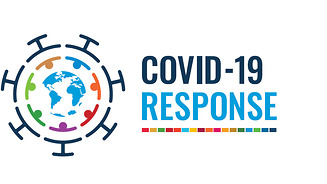20 April 2020
 More than ever, the Central Asian region needs professional journalism and reliable information to adapt its response to the pandemic, organize itself, learn from other countries’ experiences and counter the increase of rumors and disinformation.
More than ever, the Central Asian region needs professional journalism and reliable information to adapt its response to the pandemic, organize itself, learn from other countries’ experiences and counter the increase of rumors and disinformation.
#StayAtHome, #shareinformation
In response to the ongoing pandemic, UNESCO completed the translation of the series of the Massive Open Online Courses (MOOCs) for journalists on the coverage of pandemics and vaccination, available online. The courses were produced in collaboration with the WHO, UNESCO, and UNDP. The presentation will be launched in March 2022 based on the UNESCO Chair of Journalism and Communication Project MediaSDG journalism education and training platform.
Translated international standards on the access to information, Safety of journalists covering protests, Learning for All: Guidelines on the Inclusion of Learners with Disabilities in Open and Distance Learning highlighting instruments in emergency situations. Series of UNESCO audio resources on pandemic response broadcasted by Kazakh radio among 8 million citizens. The UNESCO/UNITAR Microlearning course on combating the dis-infodemic: search for truth in COVID-19 assisted youth to better understand dis-infodemic and the role of truth during COVID-19 to access reliable and accurate information.
#shareinformation #stayathome
Permanent link: http://en.unesco.kz/covid-19-response

